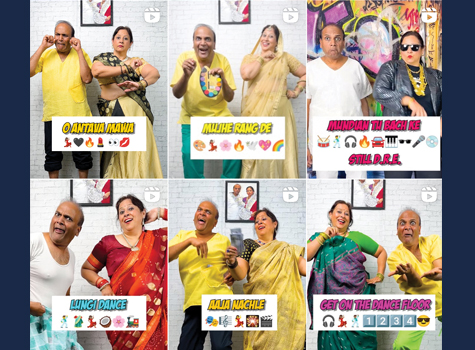
Almost everyone I have met knows someone with diabetes. I have yet to meet someone who knows nobody with diabetes – such is the epidemic of diabetes.
In 2021, 1 in 11 adults in South and Southeast Asia (90 million people) had diabetes (according to the Diabetes Atlas). This number is expected to rise to 113 million by 2030 and 151 million by 2045. In 2021, 747,000 deaths have been attributed to diabetes. People with diabetes are the tip of the iceberg. Most undiagnosed people have prediabetes.
Most diabetes cases involve adults with Type 2 diabetes – this is a chronic condition – meaning it is lifelong. Type 2 diabetes is a progressive condition- which means if you do not make lifestyle changes and control your blood sugars, it will progress, become worse over time, and possibly increase risk for other complications.
Diabetes is a condition of high blood sugars. Understand this – blood travels throughout the body. If you have high concentrations of sugar in the blood – this excess sugar travels through the blood to all your internal organs – including the brain, heart, kidneys and eyes. High blood sugar concentrations increase in your blood vessels – this causes plaque which causes corrosion. This can result in complications such as heart attack, stroke, vision loss, kidney disease, and circulation problems, among others.
What happens if you are diagnosed with diabetes? Your doctor may recommend you get a glucometer and start checking your blood sugar. Your doctor will recommend you watch your diet and be more active, possibly lose 10-20 lbs. of your body weight and return in 3 or 6 months. Now how does one do that? At this time, you will want to find a registered dietitian or a certified diabetes care and education specialist.
At the time of diagnosis, a patient with diabetes is assumed to have lost more than 50 percent of their insulin function. Engaging in small amounts of activity can help improve your insulin response. Making changes to your diet can reduce the rise of blood sugar in your body.
A patient with diabetes is assumed to have two times higher risk of heart disease. They usually have high blood pressure and struggle with cholesterol management. Once diagnosed, and to protect your heart, your doctor may have mentioned the need to start medication for cholesterol and blood pressure. But for diabetes – lifestyle management is the first line of treatment.
Diabetes can compromise immune systems – During the COVID-19 pandemic, people who had diabetes and then turned COVID positive had greater rates of death than people without diabetes.
So why is diabetes so rampant? Apparently, there are more than 42 known triggers that elevate blood sugar levels. These include, but are not limited to food, beverages, activity (or lack of), medications, sleep, stress (physical, emotional), genetic factors and many more.
In addition, living in an obesogenic environment, with temptation filled, processed, fast-food choices at every turn, high sugary, high fat food choices do not help much either.
All is not lost – diabetes is rough, but you are a tough cookie (no pun intended!). Let’s explore the first line of treatment – lifestyle modification. This does not mean you have to give up all your favorite foods or run a 5K. Diabetes is manageable – if you understand how diabetes affects your blood sugar – you can be in control. It’s not just about avoiding sweets or rice – there’s more to diabetes nutrition management.
If you or someone you deeply care about has diabetes, encourage them to work with a qualified healthcare professional who specializes in Asian (Desi) style meal planning.
Our food preparation methods and eating styles are different. Moreover, the diversity in food, religion, customs from the Himalayas to Kanyakumari vary as much as the subcontinent itself.
When you work with a knowledgeable dietitian from our subcontinent, you save yourself the trouble of explaining what Idli is, along with Khaman, Achaar or Sandesh! S/he will complete a thorough assessment of your usual diet, your activity regime, your stress factors, your work-life balance, your medications, other medical complications and come up with a customized plan for you. This takes patience, needs consistency and persistence. Allow yourself six months to a year to make changes – and see your numbers improve. If you can bring your blood sugar to prediabetes level and keep it in control without any medication for three months or more, then you have succeeded in pushing back diabetes (diabetes remission) and its complications by years!
Teju Lakkundi is a registered dietitian nutritionist, licensed dietitian nutritionist and a certified diabetes care and education specialist. She is based in Cary, NC.
Contact: 919-228-9749 or email nutriforu@gmail.com
Website: nutriforu.com



